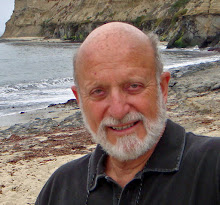Foreign Relations
A small group of citizens from Turkey, Iran, Jordan, European Union, Russia, Israel, America, India gathers to think about the tensions between the West and the Islamic world. The picture emerges of an America that intervenes but does not understand. In order to grasp the impact of centuries of trauma described by representatives of older civilizations, the Americans who are present find themselves turning to their own ethnic identities. As Americans, they don't know from their national history about humiliating domination, murder, rape, submission and national tragedy. But if one American mobilizes his other identity as part-Native American, he can find a resonance to the "trail of tears"; as a Jew, another can access feelings about the Holocaust; as a Russian, a third knows about Germany. Through these ethnic connections, Americans can begin to understand the experience of other nations.
The differences are staggering. For example, what does a representative from a 5,000 year old civilization (Persia) feel when a representative from a 200 year old civilization (America) calls his nation a "rogue state"?
The impact of historical trauma gets clearer. For example, the European Union was conceived by economists. The EU structure suggests that problems between European states can be dealt with rationally. But in the midst of a discussion, old hatreds can suddenly break out between French and Germans. Contaminated by history, they find themselves "lost in familiar places."
If irrationality and historical scars are taken seriously as data, what structure is necessary to engage a deepening discussion with citizens from different cultures? In an effort to find a voice as a citizen, what aspects of his generational history must an individual mobilize and how? And. how is the experience of working with "treatment-resistant" patients in a therapeutic community relevant to these questions?
I hope we can begin a conversation about these issues.
Correction: here is the correct link for Lost in Familiar Places.
Saturday, January 5, 2008
Subscribe to:
Post Comments (Atom)

No comments:
Post a Comment